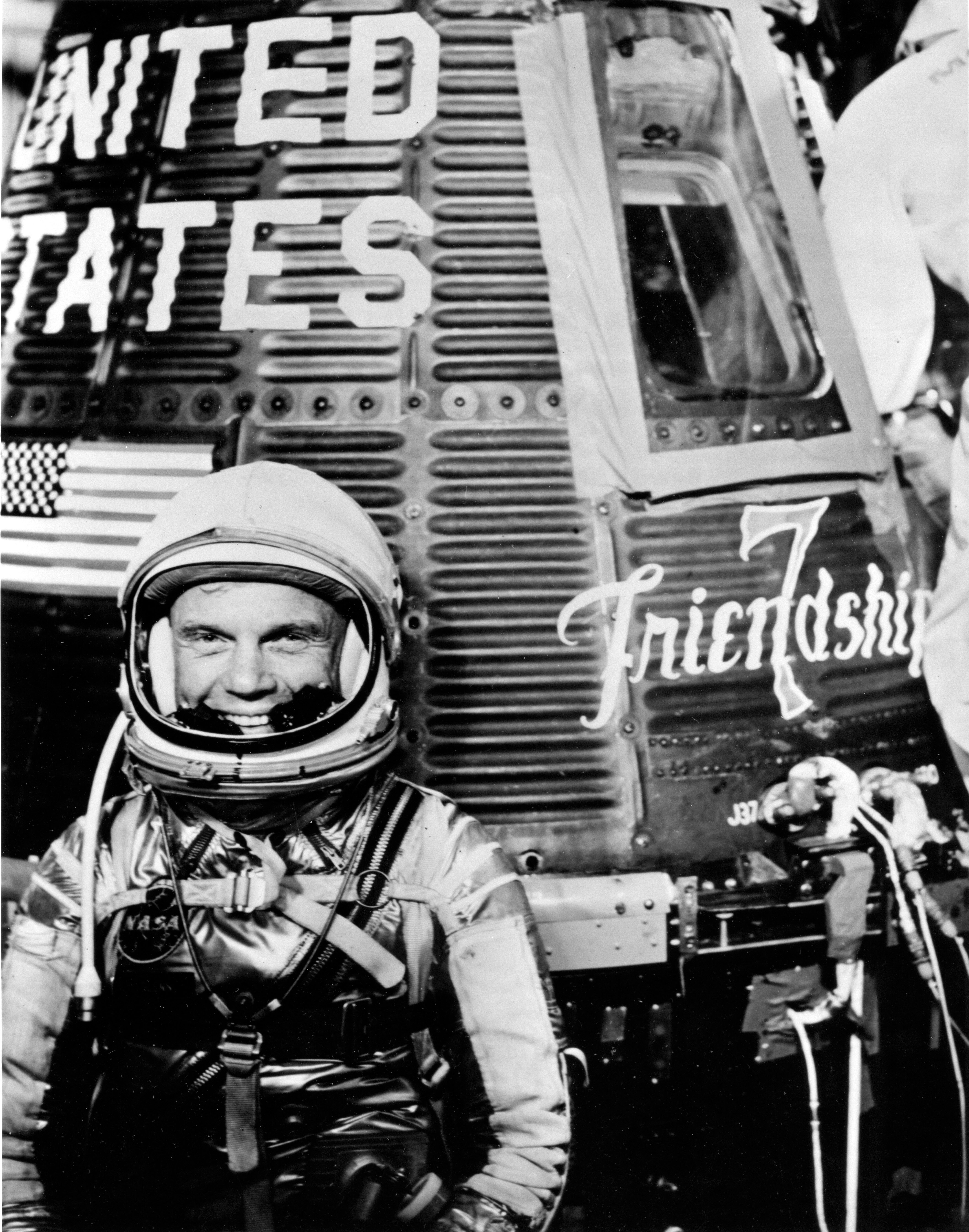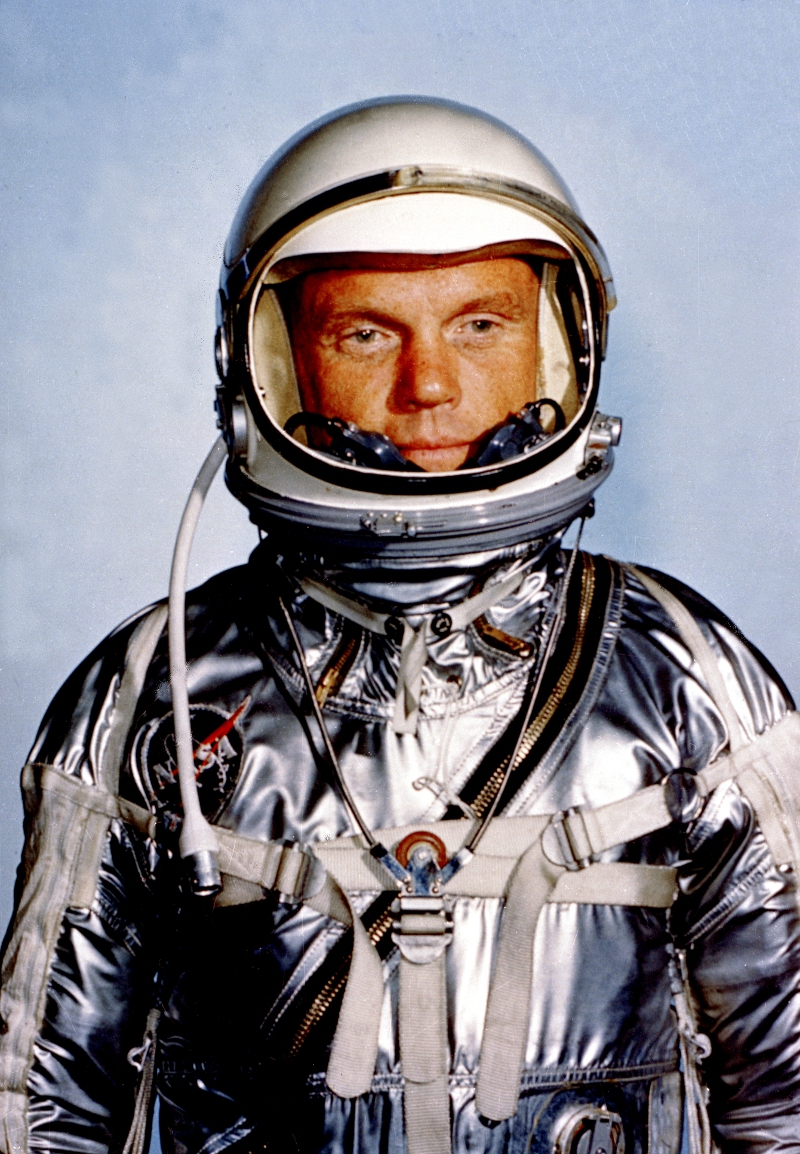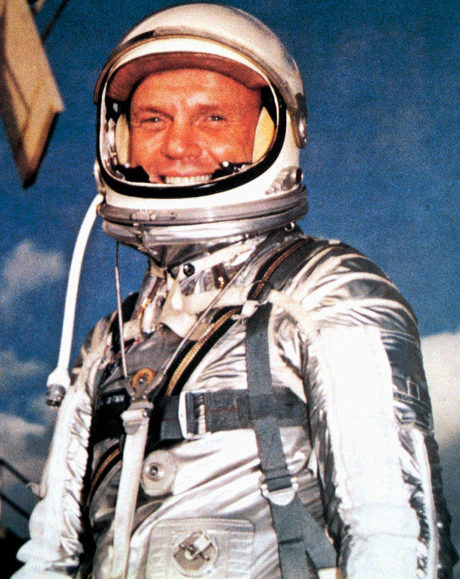In 1969, the year of the Apollo moon landing, Oriana Fallaci said this about John Glenn: “The second time I saw him, after his fall, he was a better man, I thought, not playing the Boy Scout so much.”
The fall she spoke of was literal, mostly.
That was five years after the astronaut’s forced retirement by NASA, the government fearing a Gagarin-ish demise in space for the Viking hero would be too severe a stress test for the program and the country itself. Glenn, a civilian again, decided to reinvent himself through politics, vying for a Senate seat in Ohio. Early in the campaign, he tumbled in his bathroom at home, sustaining a serious head injury, one that wrecked his equilibrium. Glenn, who was confined for two months in the aerospace medical clinic in San Antonio, said, “I only ask this: that I may walk a little in a room that isn’t a merry-go-round.” He knew he would never step on the moon and it seemed dubious whether he’s be able to pace a rug.
Glenn eventually healed, returned to politics, failed at first, then eventually achieved success in that realm and in business. But in the latter ’60s, as Fallaci described him, he was a “used astronaut, an unsuccessful politician, a tired, sick disappointed man.”
The first time the two met, Glenn was still an astronaut and he sat for an interview with Fallaci for what would become her excellent book on the U.S. Space Program, If the Sun Dies. At one point the discussion turned to religion and the alien life forms that astronauts, perhaps even the devoutly Christian Glenn himself, might encounter. The passage:
“Science in general has never proved that there is life on other planets. But space flights can–and how. And the day you meet unimaginable creatures on another planet–let’s call them ‘beings-of-unknown-appearance’–how will you explain the Genesis story, Colonel, sir?”
“The Bible doesn’t deny life on other worlds. Indeed, I’ll tell you I’d be very much surprised to not find what you call ‘beings-of-unknown-appearance’ on other planets. We’ll find them–perhaps in the form of beings or worms, although you can be certain that one day, among the millions and millions of celestial bodies, we’ll find man too. But I can imagine creatures that don’t develop with our cycle of water and carbon, creatures that feed on rocks, for example, and have no blood or tissues or organs: and the Bible says nothing to deny this. It doesn’t deny that God might have created them too in His own image and after His likeness. It doesn’t deny the possibility of loving them as true Christians.”
“And what if it were necessary to kill them, to exterminate them, these worms or rock brothers who have no blood or tissues or organs…would you find that painful, Colonel?”
Again he leaned his elbow on the arm of the chair. Again he raised his hand to his forehead. Bradbury was so far away, Father.
“No, I don’t think so. It would be sad; it grieves me even to think about it. But I could do it. I’m a man who doesn’t want to see anybody die, not even in war. But some expeditions will be like going to war, and the essence of war is death. And then, excuse me, but what makes you think we might have to exterminate the ‘beings-of-unknown-appearance’ on other planets?”
“Because they might be hostile to us. They might be far from happy to see us come, Colonel.”
“I’m optimistic: they might be completely friendly. They might also be good, pleased to see us, and we might not have to exterminate them at all. Of course…of course I would be suspicious when I saw them, ready to defend myself…I don’t know…Certainly, if some exist in our own solar system…My God…they surely exist in other solar systems, but we won’t be going to other solar systems in your lifetime or in mine. At best this will be a hundred, two hundred years from now, and a hundred or two hundred years are not many, I know, but enough to leave me with painful questions.”•




